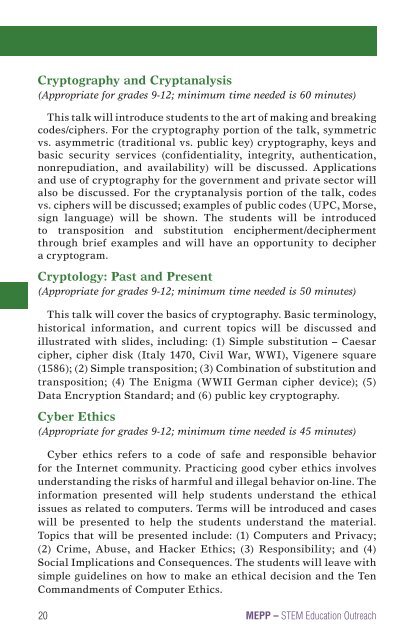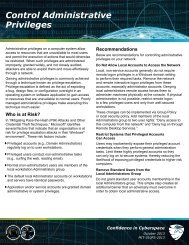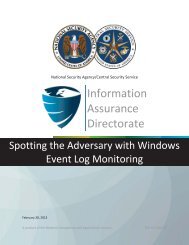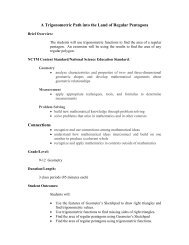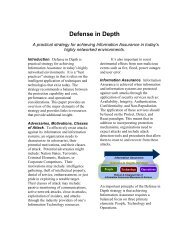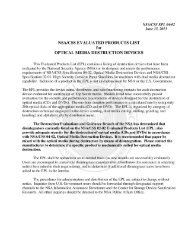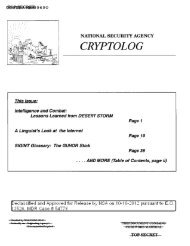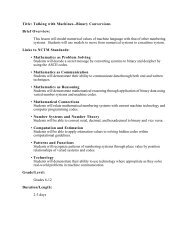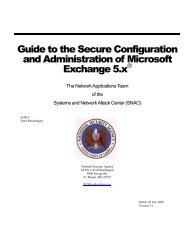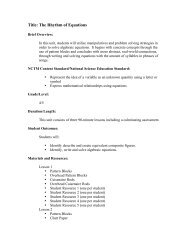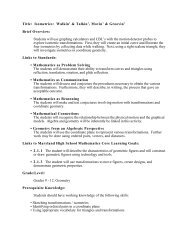Speakers Bureau Speakers Bureau - National Security Agency
Speakers Bureau Speakers Bureau - National Security Agency
Speakers Bureau Speakers Bureau - National Security Agency
You also want an ePaper? Increase the reach of your titles
YUMPU automatically turns print PDFs into web optimized ePapers that Google loves.
Cryptography and Cryptanalysis<br />
(Appropriate for grades 9-12; minimum time needed is 60 minutes)<br />
This talk will introduce students to the art of making and breaking<br />
codes/ciphers. For the cryptography portion of the talk, symmetric<br />
vs. asymmetric (traditional vs. public key) cryptography, keys and<br />
basic security services (confidentiality, integrity, authentication,<br />
nonrepudiation, and availability) will be discussed. Applications<br />
and use of cryptography for the government and private sector will<br />
also be discussed. For the cryptanalysis portion of the talk, codes<br />
vs. ciphers will be discussed; examples of public codes (UPC, Morse,<br />
sign language) will be shown. The students will be introduced<br />
to transposition and substitution encipherment/decipherment<br />
through brief examples and will have an opportunity to decipher<br />
a cryptogram.<br />
Cryptology: Past and Present<br />
(Appropriate for grades 9-12; minimum time needed is 50 minutes)<br />
This talk will cover the basics of cryptography. Basic terminology,<br />
historical information, and current topics will be discussed and<br />
illustrated with slides, including: (1) Simple substitution – Caesar<br />
cipher, cipher disk (Italy 1470, Civil War, WWI), Vigenere square<br />
(1586); (2) Simple transposition; (3) Combination of substitution and<br />
transposition; (4) The Enigma (WWII German cipher device); (5)<br />
Data Encryption Standard; and (6) public key cryptography.<br />
Cyber Ethics<br />
(Appropriate for grades 9-12; minimum time needed is 45 minutes)<br />
Cyber ethics refers to a code of safe and responsible behavior<br />
for the Internet community. Practicing good cyber ethics involves<br />
understanding the risks of harmful and illegal behavior on-line. The<br />
information presented will help students understand the ethical<br />
issues as related to computers. Terms will be introduced and cases<br />
will be presented to help the students understand the material.<br />
Topics that will be presented include: (1) Computers and Privacy;<br />
(2) Crime, Abuse, and Hacker Ethics; (3) Responsibility; and (4)<br />
Social Implications and Consequences. The students will leave with<br />
simple guidelines on how to make an ethical decision and the Ten<br />
Commandments of Computer Ethics.<br />
20 MEPP – STEM Education Outreach


